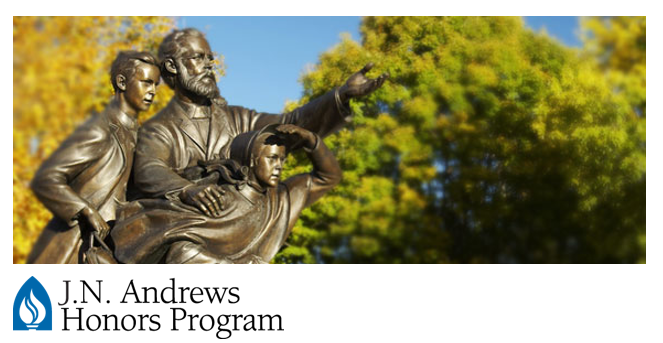Date of Award
12-12-2023
Document Type
Honors Thesis
Department
Behavioral Sciences
First Advisor
Harvey J. Burnette
Abstract
Using Everly’s proposal of a unique form of human resilience known as Psychological Body ArmorTM (PBA), this study aimed to investigate the effectiveness of Psychological Body Armor training in improving the resilience capacity amongst college students. In this study, data was collected from 194 (N = 108 for the 2022 Fall Semester and N = 86 for the 2023 Spring Semester) participants enrolled in a Wellness class at Andrews University. Participants were asked to complete a 20-item PBA questionnaire developed by Tan et al. (2022) to measure resilience based on two previous PBA studies (Burnett et al., 2019; Burnett et al., 2020) that provided evidence-based support for Everly’s PBA. Based on a bivariate correlational analysis of all the measures used to assess PBA from the two previous Burnett studies a 20-item questionnaire was created.
The PBA questionnaire has two subscales. The proactive subscale measures subjective happiness, purpose in life, self-acceptance, and spiritual wellness. The reactive subscale measures perceived stress, psychological distress, relationships with others, sleep quality, nutrition, and physical activity. The scores on the PBA questionnaire were summed up and ranged from 20 to 116, with higher scores indicating higher resilience. In this study, I used a non-experimental, pre-and post-test research design. Participants were enrolled in the general education required course, HLED 135 Wellness 360, and volunteered to participate after giving informed consent. Participants completed the PBA questionnaire (pre-test) and a demographic questionnaire during the first week of the semester. Approximately seven weeks into the semester, participants received a one-hour training about PBA and were assigned a signature assignment that demonstrated its implementation. During the final week of the class before final exam week, participants were asked to complete the same PBA questionnaire (post-test).
To evaluate the effectiveness of the PBA training intervention on resilience among the college students involved in the study, a paired-sample t-test was utilized to analyze the pre-and post-test questionnaire data. In the Fall 2022 data analysis, the paired t-test revealed a t-value of 0.000, which indicated that there was no significant difference between the pre-and post-test data. The Spring 2023 data analysis produced a similar result in that it revealed a t-value of -.395, which indicated a decrease in scores, but no significant effect. I also ran an Intra-Class Correlation (ICC) to measure the consistency or reliability (test-retest) of the PBA measures. In conducting the ICC, an r-value of 0.79 was observed in both the Fall and Spring semesters, indicating a good consistency level within the measures. These findings suggest that the intervention did not have a significant effect on the overall test scores, further indicating that a single, one-hour training session may not be sufficient to improve the overall resilience capacity of college students.
Recommended Citation
Ross, Devaney, "Exploring the Effect of Resilience Training on the Effectiveness of Psychological Body Armor among College Students" (2023). Honors Theses. 289.
https://digitalcommons.andrews.edu/honors/289
Subject Area
Resilience (Personality trait) in adolescence; College students--Psychology
Creative Commons License

This work is licensed under a Creative Commons Attribution-NonCommercial-No Derivative Works 4.0 International License.



